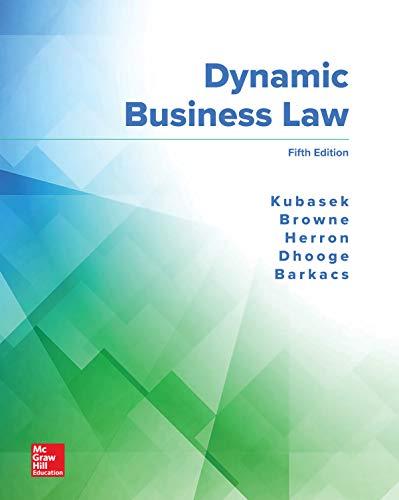Volcano Corporation was a San Diego based Delaware medical technology corporation that was a global leader in
Question:
Volcano Corporation was a San Diego based Delaware medical technology corporation that was a global leader in “vascular intervention and lead management solutions.” Beginning in January 2014, Volcano’s board of directors began exploring merger options as part of its general business development outreach. Volcano enlisted Goldman Sachs to evaluate other companies’ interest in such a transaction. To this end, Goldman Sachs procured a list of six “tier 1 buyers” and seven “tier 2 buyers.” Volcano reached out to five “tier 1 buyers” to gauge interest in a merger. However, all five companies declined. In June 2014, two months after the five contacted companies rejected Volcano’s merger proposal, the sixth company on the “tier 1 buyers” list, Philips Holdings, a fully owned subsidiary of a Dutch health technology company, expressed interest in acquiring Volcano through a merger. Following a series of confidential meetings, Philips delivered a nonbinding expression of interest to buy Volcano out at $24 per share subject to an eight-week period during which Philips would perform due diligence. Volcano’s common stock closed at $16.18 per share when Philips delivered its indication of interest. However, after an August press release where Volcano stated it was lowering its revenue guidance for the rest of the year, Volcano’s common stock price fell to $12.56 per share. Philips informed Volcano it was lowering its asking price from $24 per share to between $17 and 18 per share. The parties ceased working on the transaction in September 2014 after failing to find a common price point. Third time was the charm for Volcano and Philips as, after a second fizzling out of merger negotiations, Volcano agreed to be bought out by Philips at $18 per share. The parties executed a two step merger. In December 2014, Philips issued a Tender Offer to purchase all of Volcano’s common stock at $18 per share. When the Tender Offer closed in February 2015, 89.1 percent of Volcano’s shares were tendered. Philips then completed the merger without a shareholder vote. Before the merger concluded, three plaintiffs filed lawsuits, which were combined into a class action lawsuit, to enjoin the merger. The plaintiffs withdrew their motion in January 2015, but filed new complaints in March 2015, alleging Volcano’s board of directors breached its duties of care and loyalty in regard to the merger. The defendants filed a motion to dismiss, and the court determined that the Business Judgment Rule would be used as the legal standard to evaluate the plaintiffs’ claim. Furthermore, the court ruled that the Business Judgment Rule irrebuttably applied to the case. What is the Business Judgment Rule and how does it generally protect directors and officers? What is the distinction between rebuttable and irrebuttable applications of the Business Judgment Rule according to the court?
Step by Step Answer:

Dynamic Business Law
ISBN: 9781260247893
5th Edition
Authors: Nancy Kubasek, M. Neil Browne, Daniel Herron, Lucien Dhooge, Linda Barkacs





